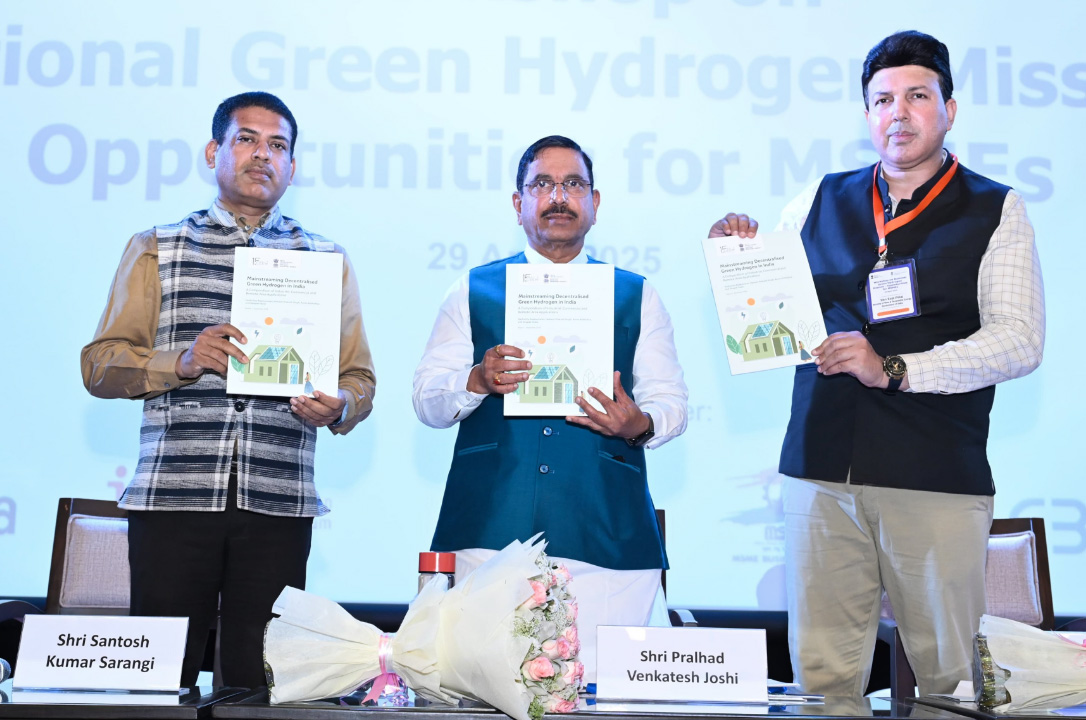New Delhi: “Mainstreaming Decentralised Green Hydrogen in India,” was launched today at a workshop focused on the National Green Hydrogen Mission. It delves into the significant role that decentralised green hydrogen production can play in accelerating India’s transition towards a cleaner energy future.
The workshop, held here brought together key stakeholders including policymakers, industry experts, and researchers to discuss the findings of the report and chart a course for the wider adoption of decentralised green hydrogen technologies across the nation.
Addressing the attendees, Minister MNRE, Prahlad Joshi emphasized the government’s commitment to the National Green Hydrogen Mission and lauded the report for its timely insights. He stated, “Decentralised green hydrogen offers a unique opportunity to empower local communities, enhance energy security, and decarbonise hard-to-abate sectors. This report provides a valuable roadmap for realizing this potential.”
Secretary of the Ministry of New and Renewable Energy (MNRE), Santosh Sarangi, also addressed the workshop, highlighting the strategic importance of exploring diverse pathways for green hydrogen production. “While large-scale projects are crucial, decentralised models offer flexibility and can cater to specific regional needs, particularly in remote and industrial clusters,” he noted.
The report, “Mainstreaming Decentralised Green Hydrogen in India,” provides an in-depth analysis of the potential applications of decentralised green hydrogen across various sectors, including transportation, industrial processes, and power generation. It identifies key opportunities and challenges associated with its implementation, offering recommendations for policy frameworks, technological advancements, and financial mechanisms to facilitate its mainstreaming.
Key findings of the report include:
- Significant potential for decarbonising remote areas and industrial clusters: Decentralised production can reduce transportation costs and infrastructure requirements, making green hydrogen a viable option for geographically dispersed consumers.
- Enhanced energy security and resilience: Localised production can decrease reliance on centralized energy infrastructure and enhance energy independence.
- Opportunities for local economic development and job creation: The deployment of decentralised green hydrogen projects can stimulate local economies and create skilled jobs in manufacturing, installation, and maintenance.
- Need for supportive policies and infrastructure: The report underscores the importance of clear regulatory frameworks, financial incentives, and the development of local supply chains to support the growth of decentralised green hydrogen.
The workshop concluded with panel discussions and interactive sessions aimed at fostering collaboration and knowledge sharing among participants. The launch of this report marks a significant step towards realizing the full potential of green hydrogen in India’s clean energy transition, with a particular focus on the transformative power of decentralised production models.


